My heart is octopied by octopuses and yours should be too
By Allison Brown

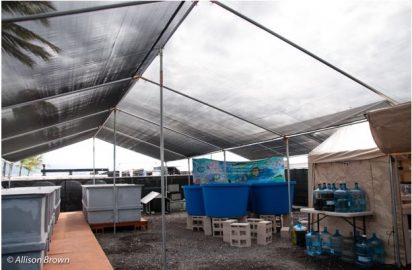
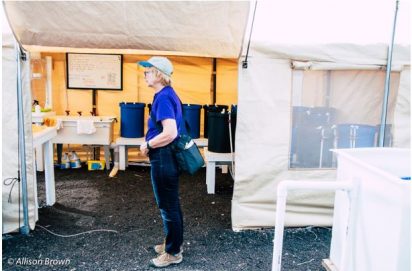
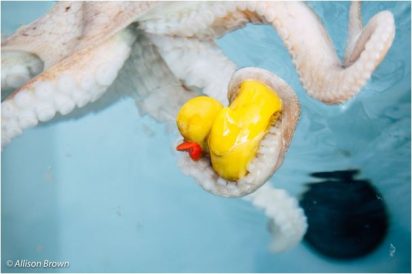
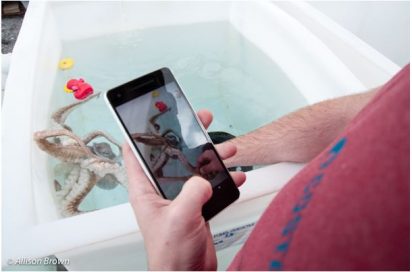
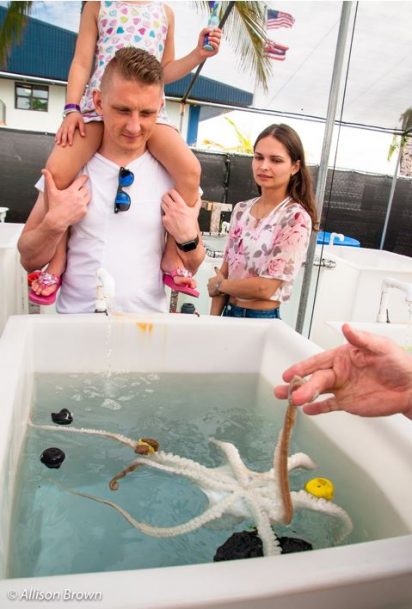
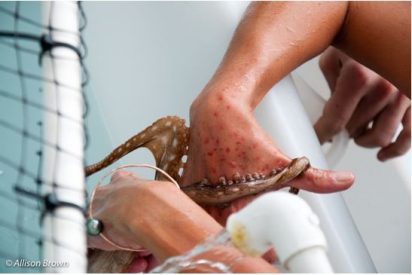
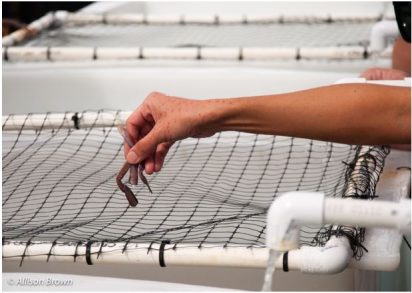
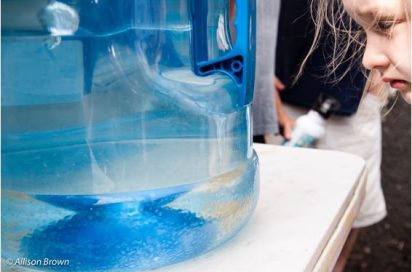 As a serial spontaneous traveler, I often end up at a destination with no plans for what to see or do. Much to the chagrin of my parents, intensive scheduling doesn’t always factor into my pre-trip planning. I enjoy that freedom to see where the days take me. My trip to Kona, on the big island of Hawaii, was a classic trip for me (and maybe even a little more organized and planned out than usual). I did have a short list of 5 or 6 recommendations from friends for things to do and a place to stay pre-arranged. Fueled by needing ideas of things to do and the boredom of waiting for my travel partner, I often head to the pamphlet shelf that almost every airport or hotel has. This shelf is filled with details on the zoos, museums, tours, and food that you must experience in order to consider your trip a “success”. Most of the things on pamphlet shelves are out-of-date or simply boring, but this time I found a gem. My eyes went straight to the image of an octopus and I saw the words “Kanaloa Octopus Farm, The World’s First Octopus Farm.” For many people this would be one of those pamphlets you pick up and take with you but that then gets put into the back of the car with the rest of the ones you stockpiled and forgot about. In this particular case octopuses (yes, this is the correct way to say this) were involved, and these awesome creatures always deserve a front seat. I simply HAD to see the world’s first octopus farm.
As a serial spontaneous traveler, I often end up at a destination with no plans for what to see or do. Much to the chagrin of my parents, intensive scheduling doesn’t always factor into my pre-trip planning. I enjoy that freedom to see where the days take me. My trip to Kona, on the big island of Hawaii, was a classic trip for me (and maybe even a little more organized and planned out than usual). I did have a short list of 5 or 6 recommendations from friends for things to do and a place to stay pre-arranged. Fueled by needing ideas of things to do and the boredom of waiting for my travel partner, I often head to the pamphlet shelf that almost every airport or hotel has. This shelf is filled with details on the zoos, museums, tours, and food that you must experience in order to consider your trip a “success”. Most of the things on pamphlet shelves are out-of-date or simply boring, but this time I found a gem. My eyes went straight to the image of an octopus and I saw the words “Kanaloa Octopus Farm, The World’s First Octopus Farm.” For many people this would be one of those pamphlets you pick up and take with you but that then gets put into the back of the car with the rest of the ones you stockpiled and forgot about. In this particular case octopuses (yes, this is the correct way to say this) were involved, and these awesome creatures always deserve a front seat. I simply HAD to see the world’s first octopus farm.
The Kanaloa Octopus Farm is located near the airport on black gravel, with carrier planes doing training runs overhead and a natural energy laboratory next door. A small, tarp-covered, chain link fence surrounds the shelter. Octopus-themed sundries are on sale and a green turf rug covers the gravel. The phone number on the sign is crossed out in black marker and a different one is handwritten below. This farm works to “provide a sustainable source of live cephalopods for aquariums, researchers and saltwater aquarium hobbyists” and is largely funded by the $25-per-person tours it offers every day. Delicate creatures, octopuses are not easy to grow or keep alive, and the people who work here are scientists with advanced degrees and a passion for the creatures.
When I place my hand in the tanks they reach out with a slippery arm to grab it and try to pull me closer. Changing colors in the blink of an eye, one seems to play ‘fetch’ with a visitor and grabs a floating toy wherever it is placed in the tank then releases it. It has been observed before that octopuses play. Another, named Moonica by the guide’s daughter, is a known escaper and keeps trying to get out of his tank until the guide carefully clamps a mesh covering on. She repeatedly has to slide an errant octopus arm back into the tank during this process.
Intelligent eyes bely the fact that this species of octopus, the he’e mauli, only live about a year and a half and it is obvious by the endearing tone of voice their caretaker and scientist takes while talking to them that they are well loved. Someone asks if they recognize the guide since she is their primary caretaker. She assures us that they do and they will be extra needy for attention around her in comparison to others. Some research has suggested that octopuses do have personalities and the guide clearly believes that is true.
The guide places a crab leg into one of the female’s tanks. The octopus grabs her and refuses to let go. Their delicate bodies mean that pulling away hard would injure the animal, but their many arms and muscular suckers mean that they are very good at grabbing on. Red suction marks start showing up on the tour guide’s hands and arms and the guide starts getting a little less calm. These creatures are sensitive, curious, and playful, but as this octopus pulls off skin from the guide’s knuckles I can see how they are such effective predators. Only one small part of their body, the beak, is actually hard and capable of cutting, but their 1,920 muscular suckers can do damage too and the guide is obviously in pain. After extricating herself in spite of our feeble attempts at helping (the octopus did not care about our hands in her tank), she reassures us that she is fine though her hand feels a stinging sensation, this isn’t surprising as all octopuses are reportedly venomous. According to her, this is possibly happening because the female octopus is likely going to be laying eggs in the near future and is defending her territory. Octopuses are some of the most dedicated mothers around and will sacrifice their health, and eventually their lives to care for their eggs.
As habitats are negatively affected, noise pollution fills the ocean, and ocean acidification affects the shells of octopus’s food, the knowledge that if need be we can keep breeding populations of these incredible animals in our world is reassuring. In fact, it appears that populations of the creatures are doing remarkably well, though we cannot be sure as they are elusive organisms and that status could change quickly. Regardless, octopuses are charismatic and wonderful at raising awe and respect for the ocean and its inhabitants. The amazed looks on the participant’s faces as they interacted with these creatures would have been worth the visit even if I hadn’t gotten to hold “hands” with an octopus.